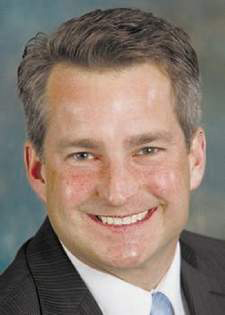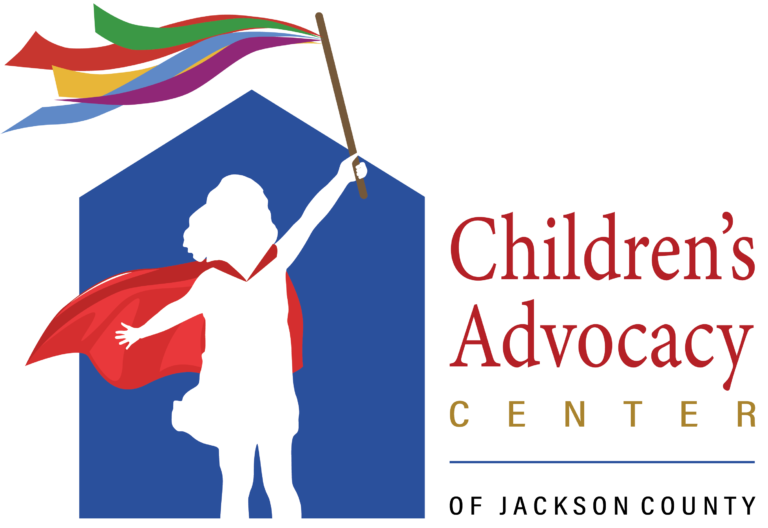This is a guest post by David Hoppe, Deputy District Attorney
I was asked to write a blog about hope.
Hope in dealing with child abuse. A pretty tough topic.
A couple of decades ago a doctor was conducting an obesity program with a high dropout rate. Surprisingly many of the people who dropped out of the program were successfully losing weight during the program. Even more surprisingly, interviews revealed that a good portion of the dropouts had been victims of childhood sexual abuse. So for these people, obesity had not been their problem, it had been their protective solution. Indeed many of them worried about the change in social and sexual expectations that would occur with major weight loss. Researchers at the Centers for Disease Control saw the importance of these findings and decided to create a large study that would provide proof of the findings.
Thus, the Adverse Childhood Experiences Study, or ACE Study for short, was born.
The ACE Study had 18,000 volunteers through the Kaiser Health Plan down in San Diego. These volunteers provided data to the physicians about their adverse childhood experiences in conjunction with health records and their reporting of self-destructive behaviors. The average age of the participants was 57 years old. The two most important findings were that these adverse childhood experiences are more common than previously recognized and have a direct relation to victim health even 50 years later.
Indeed, they found that 22% of the participants had been sexually abused as children.
And the higher the score of these adverse experiences, the more likely to engage smoking, overeating, drug using, attempted suicide and so on and so on and so on. So in making a diagnosis of a woman who had been sexually abused as a child you could diagnose her problems like this – childhood sexual abuse resulting in chronic depression resulting in morbid obesity leading to diabetes and hypertension ending with coronary artery disease.
So what to do with these past victims, these “Prisoners of Childhood,” who may be undiagnosed and untreated for their true affliction? And why should we have hope?
We have hope because now we have instituted a policy wherein polygraph disclosures during sex offender treatment of pedophiles are being used to contact additional victims and their families directly to let them know that they may have been abused in the past and specifically that we can help. These disclosures are brought to the Multi-Disciplinary Team and trained counselors are then utilized to contact the victims and offer counseling services which can be covered for payment under the Crime Victims Compensation program.
If we can get even a handful of these victims each year to stop eating themselves to death, to stop using drugs, to leave the prison of their childhood experiences and move forward as empowered victims, it will all be worth it.
There is hope for past victims.
As for present victims, the “Prisoners of Fear”, we currently have two prosecutors who specialize in child abuse prosecution along with many well-trained investigators in law enforcement, a vigilant child protective services and the Children’s Advocacy Center with three licensed child abuse therapists on staff. Resource-wise things are looking good and getting better. There is a Jackson County Relief Nursery (the Family Nurturing Center) that promotes the healthy development of children by coordinating a full range of therapeutic and support services to struggling families.
Specifically, the relief nursery offers therapeutic early childhood classrooms, mental health counseling for parents and children, alcohol and drug recovery support, home visiting, parent education, crisis response and outreach, respite childcare, and employment counseling and support. In 2003 they found that 94% of the families enrolled in the relief nurseries in Oregon did not require additional reports of suspected child abuse or neglect. Furthermore, 94% of the enrolled children remained in the care of their families. Present victims throughout Oregon are using the services of these relief nurseries and hopefully we will take our prisoners of fear and turn them into normal, playful children again.
In talking about all of the remedial measures we have taken thus far with past and present victims, it begs the question of how do we create a future without child abuse victims?
It would not matter right now if there were ten more child abuse prosecutors and fifty more child abuse investigators with five additional relief nurseries — that would not make the fundamental change that would be required to get to the root of the problem, preventing future victims.
We have a will that needs to be harnessed with a way. I think I know the way.
The best attorney I have ever seen, and a hero of my adulthood, is a skinny, lanky guy with spectacles who looks like a young version of Doogie Howser. Victor Vieth is one of the top child abuse prosecutors in the country. He was formerly the director of the National Center for Prosecution of Child Abuse, and a man with a plan. A plan to largely eliminate future victims of child abuse. His plan is called “Unto the Third Generation.” It is a call to end child abuse in this country within 120 years.
This is his Battle Plan.
- First, abused children must be reported into the system and those reports must be of a high quality. Every university must teach students entering professions, where they will be mandated reporters, the skills necessary to perform this task. Mandated reporters in the field must then receive annual training on the detection of abuse and their obligations to report.
- Second, the system must conduct a competent investigation of every child abuse case that comes to its attention and when abuse is substantiated, appropriate civil and criminal actions must be competently pursued. Children reported into the system must be interviewed by a social worker, police officer, or other professional trained in the art of speaking to children. Child protection workers called on to investigate and repair families damaged by abuse must be competent to perform this task. And prosecutors must be adequately trained to prosecute egregious child abusers.
- Third, we must teach police officers, social workers, prosecutors and other protection professionals to be community leaders in the prevention of child abuse. This training must begin in college and continue once these professionals are in the field. In their role as community leaders, child protection professionals must enlist the support of the faith based community. Prevention efforts must be locally run and tailored to local needs. And everyone engaged in the campaign against child abuse must understand their role in history and act accordingly.
There is currently a program in place called Half a Nation that is striving towards meeting some of these training goals by 2020 across the country. It is hoped that by 2040 every child reported into the system would then be interviewed by someone skilled in the art of speaking to children.
As for the 80 years after that, it is then hoped that there will be a tipping point where we could dramatically reduce if not eliminate child abuse in this country. Tipping points have already occurred twice in my lifetime, in 1989 and 2005, where people stood up together and said “Enough is enough!”
In conclusion, I would like to quote one of the great men of history by saying “Be not afraid.” It will not happen during my lifetime, and probably not during the lifetimes of my children, but God willing, in 120 years we will have largely eliminated child abuse in this country.
Let us hope.

